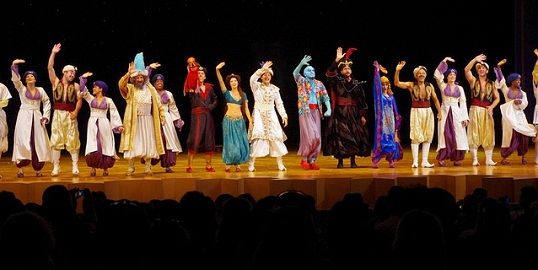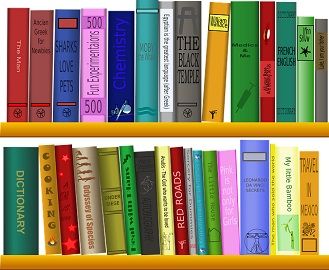Definitions & Differences - Play and Drama, Fiction and Non Fiction
Difference Between Play and Drama
Drama is a genre of literature, which is basically the script, and the actors play the role of different characters to tell the story to the viewers and facilitate interpretation. It is often designed and developed for theatrical portrayal. Drama is one of the active forms of literature, which tends to inform, educate and entertain the audience at the same time.
Drama is often juxtaposed with a play. Play implies a piece of literature, which is written in single or multiple acts, consisting of different scenes in each act.
The primary difference between play and drama is that play is a dramatic performance on the stage, whereas drama is a literary composition in the form of prose or verse, that portrays dialogue showing conflict which the main character attempts to resolve.
Drama Vs Play-Comparison Chart
| BASIS FOR COMPARISON | PLAY | DRAMA |
|---|---|---|
| Meaning | A play implies a dramatic work which includes dialogue amidst the characters, and performed in a theater. | Drama is a literary composition, developed with an aim of theater performance, in front of the audience. |
| Meant for | Reading/Watching | Stage Performance |
| Creator | Playwrights | Dramatist |
| Interpretation | Characters induce interpretation and idea. | The audience interprets the drama as per their own understanding. |
| Direct interaction | There is no direct interaction between audience and playwright | Takes place between dramatist and audience |
Play can be understood as a dramatic work, characterized by direct interaction between the characters. It is designed for theatrical performance, which is arranged into dialogue, acts and scenes. It is meant for a particular audience, i.e. it can be a stage play, screenplay or radio play.
The feelings, emotions and ideas of the writer are presented by way of characters. In order to increase the understanding of the viewers, the playwright makes use of various dramatic elements.
The main elements of a play are plot, characters, dialogue, setting, conflict and resolution.
The pattern found in the plot of the play is – Rising Action, which is followed by a Climax, and finally, Falling Action takes place.
It is composed of a single act or a number of acts, wherein each act is further divided into the scene. In each scene, various characters come on or off the stage, so as to play their respective roles and speak their lines. In a play, the main character is the protagonist, while the opposing character is an antagonist.
Definition of Drama
Drama refers to a type of fictional or non-fictional work, often presented through performance and dialogue in a theatre, stage, radio or television, in the form of play, mime, opera, ballet, and so forth. It is a literary composition, written as prose or poetry, to act a story or to portray a character, having conflict, tension and various other types of emotions.
It is also otherwise referred to as ‘staged art’. It is a literary piece which is designed for a theatre performance, wherein the different characters are assigned the roles and they perform their respective roles when the action is presented on the stage.The characters may include human beings, spiritual beings, animals, etc. There are four basic elements of drama – imitation, plot, action and dialogue.
TYPES OF DRAMA-
- Comedy: Drama which has humour and sarcasm, is comedy. The components of comedy are clever wordplay, lighthearted tone, happy ending, offbeat characters, comical misunderstanding and so forth.
- Tragedy: The type of drama having a sad ending or tragic events, such as disaster, pain or even death of the main character is called a tragedy.
- Tragicomedy: It is the hybrid form of tragedy and comedy. It has a serious script, which is demonstrated in a humorous manner. It is characterised by an ambiguous theme and it neither has a happy ending nor a comical one.
- Farce: An extremely comic dramatic work of fiction that uses ridiculous yet amusing behaviour. It is characterized by non-sensical and unrealistic situations.
- Opera: A dramatic work in which speaking is replaced with singing or instrumental accompaniment is called as opera.
- Melodrama: Melodrama, as the name suggests, is the exciting dramatic composition overstated characters and sensational events aim to call for the senses of the viewers.
- Musical Drama: A musical drama is one in which the dramatist combines songs, dialogue, acting and dance, to narrate the story.
Key Differences as shown in the chart above-
- Play refers to a written composition, which is meant to be performed on stage and asks to be imagined by the audience. On the other hand, drama implies the depiction of fictional or non-fictional work, by way of acting of the written script.
- The artist who writes the drama or performs in it is called as dramatist whereas play is written by playwrights.
- The playwright does not narrate the story, rather the audience interprets the story as the characters interact and perform on the stage. As against, the drama is presented in dialogue, wherein the characters talk to themselves and respond to the events accordingly.
- Plays are written for a reading audience, but drama needs to be transformed into some other form, i.e. theatre, to present the idea.
- In a play, there is no direct interaction amidst the audience and playwright, but in case of drama direct interaction between dramatist and audience is there.
In a nutshell, the drama is a distinct and concrete genre of literature, that demonstrates life experience pragmatically to the viewers. On the other hand, a play is a subset of drama, which is used to represent actual or imaginary occurrences.
Difference Between Fiction and Nonfiction
Literature has a wide range of styles/forms and all those forms of literature can either be fictional or nonfictional. Fiction is one that is based on imagination and fantasies while Nonfiction implies the form of writings which talks about real events, people and facts.
In short, we can say that fiction represents something which is not true, it is unreal, whereas nonfiction indicates a factual account.
Fiction can be understood as the literary work created as per one’s imagination, i.e. the author’s creative thought or made-up stories and characters. On the other hand, reading a nonfictional work means you are reading something that actually happened or someone that actually exist, i.e. it is not a cooked-up story, rather it is a fact and evidence-based account.
Fiction Vs Nonfiction -Comparison Chart
| BASIS FOR COMPARISON | FICTION | NONFICTION |
|---|---|---|
| Meaning | Fiction is any narrative which does not contain facts or real events, rather it is based on imagination. | Nonfiction implies that form of prose which discusses true events, facts and information. |
| Nature | Subjective | Objective |
| Flexibility | Yes | No |
| Directness | Readers are supposed to follow and understand the abstractly presented theme. | There must be a direct presentation of the information. |
| Purpose | To entertain the readers. | To educate or inform the readers. |
| References | May or may not be given | Must be given |
| Perspective | Narrator or Character | Author |
Fiction can be understood as an imaginative creation, which does not exist in reality, rather it is produced by the author’s creative thought. It is a type of imaginative prose literature, which can be both spoken or written account containing imaginary characters, events and descriptions.
Writing fiction means that the writer creates their own fantasy world, in their minds and introduce it to the rest of the world through the book. As the story is not real and factual, they cook it up in a way that makes it very interesting and engaging.
From the reader’s point of view, fictional work refers to the creative fabrication of a fantasy world, by the author, i.e. the author imagines the entire story and its characters, the overall plot, dialogues and setting.
The work of fictions is never based on a true story, and so when we go through such works, it visualizes such situation which we may never face in reality or we will come across those characters who we may never get a chance to meet in our real life and also take us to a world where we may never go otherwise.
It is that form of entertainment or art which contains hypothetical plot and characteristics in any format, such as comics, television programs, audio recordings, drama, novel, novella, short story, fairy tales, films, fables, etc. It includes writing related to mystery, suspense, crime thrillers, fantasies, science fiction, romance, etc.
So, fictional writings have the ability to inspire, or change the perspectives towards life, engage in the story, surprise with the twist and turn and also scare or amaze with the ending.
Definition of Non-fiction
Nonfiction is the widest form of literature which contains informative, educational and factual writings. It is a true account or representation of a particular subject. It claims to portray authentic and truthful information, description, events, places, characters or existed things.
Although, the statements and explanation provided may or may not be exact and so it is possible that it provides a true or false narrative of the subject which is talked about. Nevertheless, the author who created the account often believes or claim it to be true, when it is being created.
When a nonfictional work is created, the emphasis is given to the simplicity, clarity, and straightforwardness. It encompasses essays, expository, memoirs, self-help, documentaries, textbooks, biographies and autobiographies, newspaper report and books on history, politics, science, technology, business and economics.
The main purpose of reading nonfictional books is to learn more about a subject and increase the knowledge base.
Key Differences as shown in the chart above-
- Fiction is a literary work which contains the imaginary world, i.e. characters, situation, setting and dialogue. On the flip side, nonfiction implies that type of writing which provides true information or contains such facts or events which are real.
- Fiction is subjective in nature, as the author has the freedom to add his opinion or perspective to the writeup. As well as the writer can elaborate any character, plot or setting as per his imagination. However, nonfiction is objective because the writer cannot add his/her opinion, as it is purely fact-based and authentic and because there is no scope for imagination, the writer needs to be straightforward.
- When writing fiction, the author has the flexibility, to move the story in the direction which make it more exciting and interesting. Conversely, nonfictional writers do not have such flexibility because they have to provide information which is true and real.
- In a fictional work, the writer is of the opinion that the audience will follow and understand the theme which is hidden in the content. In fact, the story can be interpreted by the readers in different ways depending on their level of understanding. As against, in a nonfictional work, there is a simple and direct presentation of the information and facts. So, there is only one interpretation.
- The main purpose of writing fiction is to entertain the readers, whereas nonfiction writing educates the reader about a subject or to further their knowledge about something.
- In fictional writing, references may or may not be provided by the author. On the other hand, in nonfictional writing references are provided compulsorily by the writer wherever required, so as to make the writing more credible.
- Fiction is always from the perspective of the narrator, i.e. the writer, or the character, i.e. the main or supporting character of the story. In contrast, non-fiction is always from the perspective of the author.



Comments
Post a Comment